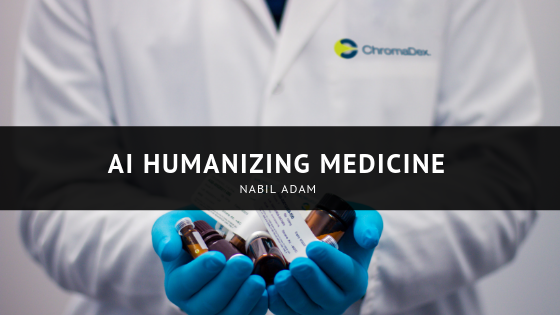The key to more effective healthcare is accurate and precise data on the state of a patient’s health. The faster this data can be retrieved, the faster health care professionals can take the appropriate steps in patient care. By allowing AI devices to gather this medical data, a healthcare professional’s time is freed up. This allows doctors the time to interact compassionately with their patients
Most hospital patients are discharged without a long term monitoring plan. Unfortunately, this leaves the patient with no pro-active plan for aftercare in their home. The medical technology company, Royal Philips, has developed a suite of AI resources to address this problem in patient care.
For example, the Royal Philips CareSage program is a predictive cloud-based analytics AI. It works with devices such as Lifeline and AutoAlert, to collect and analyze patient data from a multitude of sources. This allows for better monitoring and healthcare for at-risk patients.
The CEO of Royal Philips, Frans van Houten, has expressed the viewpoint that while such AI devices may seem impersonal, they certainly will not replace human doctors anytime soon. In fact, the ability of a doctor to instantly retrieve patient data frees up their time to interact with their patients.
In today’s high tech environment, the use of innovative healthcare devices and cloud-based storage has become ubiquitous. However, there is a concern that this vast amount of data can not be effectively analyzed once a patient experiences an acute healthcare crisis. This is where AI comes in. By accessing personal cloud-based health data, an almost immediate assessment can be made. The benefit to the patient and doctor is an affordable and precise diagnostic tool.
Another healthcare issue addressed by AI is our rapidly aging population, and fewer young people entering the healthcare professions. AI can help fill this gap, by providing accurate diagnostic information to healthcare workers. This information can also be retrieved anywhere in the world. Finally, AI can also reduce the cost of healthcare by automating the gathering of a patient’s health data.
Cloud-based data storage and AI are here to stay. When combined with personal healthcare devices, AI systems can deliver vital diagnostic data directly to doctors. This allows doctors more time for compassionate and human interaction with their patients.

